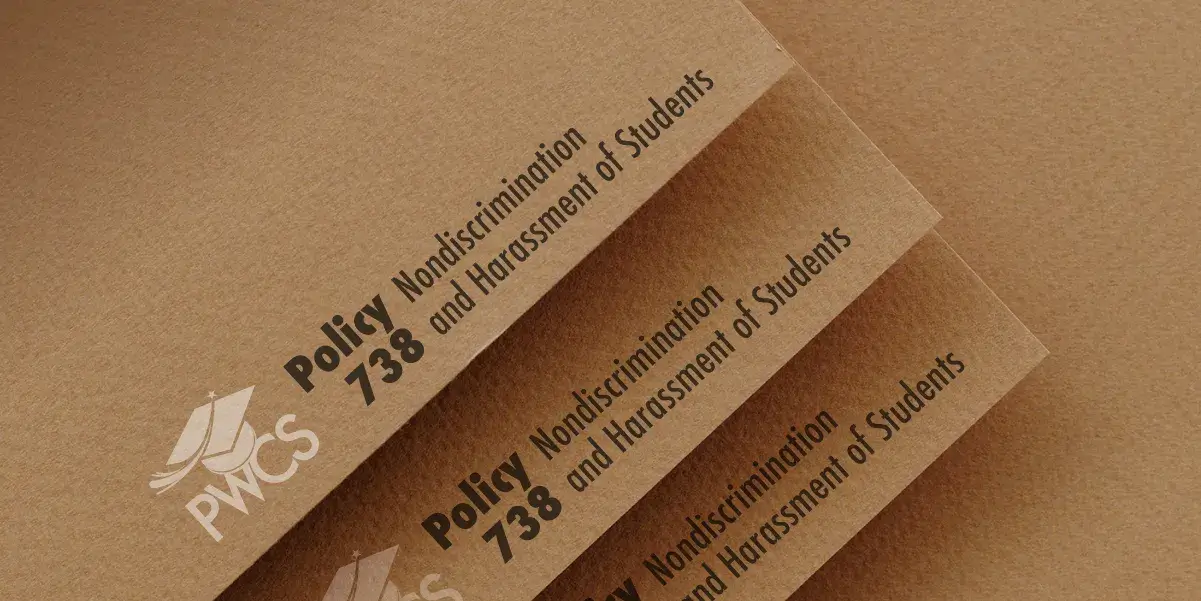
PWCS celebrates our diversity as a strength and welcomes all students. PWCS is also committed to creating a safe and welcoming environment and serving as trusted partners in education with our students, families, and community.
The purpose of school division policies addressing nondiscrimination is to ensure that all PWCS students and families have access to our educational programs and facilities so they can learn, graduate, and have successful futures. PWCS’ current policies are consistent with federal and state anti-discrimination laws. PWCS policies already prohibit discrimination on the basis of sex, sexual orientation, and gender identity consistent with Virginia law.
The most recent update to PWCS Policy 738, “Nondiscrimination and Harassment of Students,” brought this policy into conformity with those other PWCS nondiscrimination policies and regulations intended to ensure compliance with the Virginia Values Act, which was amended by the legislature to prohibit discrimination based on sexual orientation and gender identity.
In Gloucester County School Board v Grimm, the U.S. Court of Appeals clarified that any public school that denies a transgender student the right to access its school programs and facilities, consistent with the student’s gender identity, is engaging in discrimination on the basis of sex in violation of Title IX and the Equal Protection clause of the U.S. Constitution. That is the law in Virginia, which VDOE’s Model Guidelines acknowledge.
PWCS already has a regulation in place to address the rights of transgender and gender-nonconforming students in our schools. PWCS Regulation 738-5, “Treatment of Transgender and Gender Nonconforming Students,” is consistent with both federal and state anti-discrimination laws, and PWCS employees will continue to follow this regulation.
Parents and guardians are critical in their child’s education and PWCS has a history of working directly with families of students who are transgender, and those who are gender nonconforming, to ensure a safe and positive academic experience that meets individual student needs. Sensitive situations are addressed on a case-by-case basis in the best interest of the child, while prioritizing safety.
